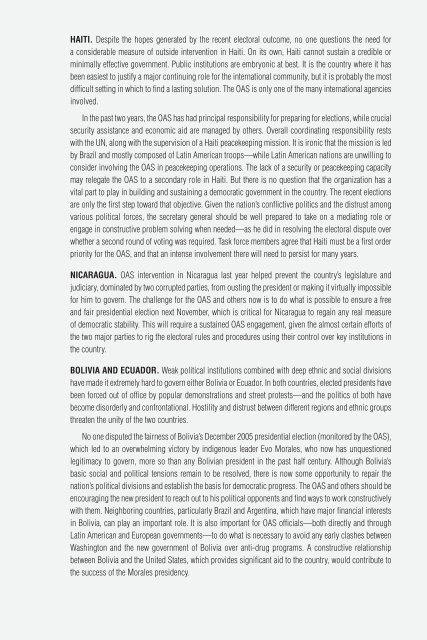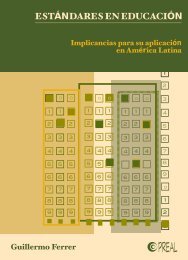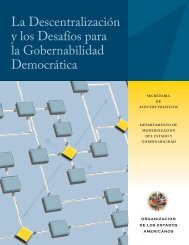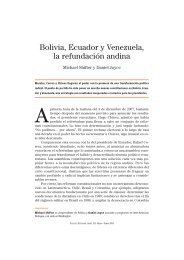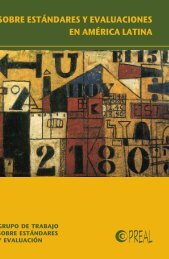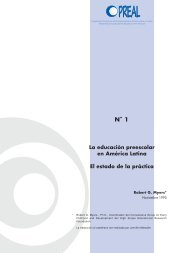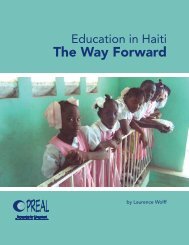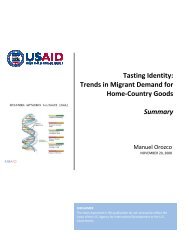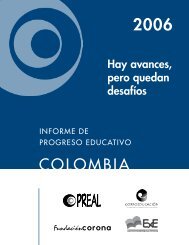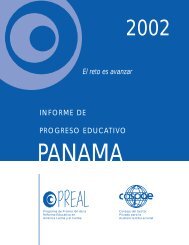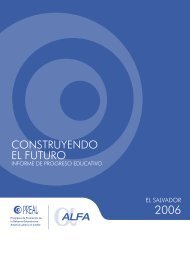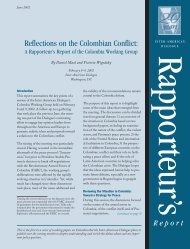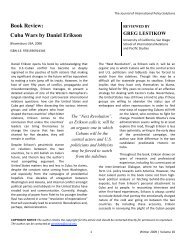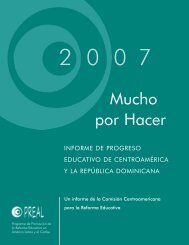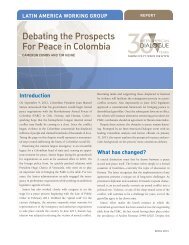View PDF Document - Inter-American Dialogue
View PDF Document - Inter-American Dialogue
View PDF Document - Inter-American Dialogue
Create successful ePaper yourself
Turn your PDF publications into a flip-book with our unique Google optimized e-Paper software.
HAITI. Despite the hopes generated by the recent electoral outcome, no one questions the need for<br />
a considerable measure of outside intervention in Haiti. On its own, Haiti cannot sustain a credible or<br />
minimally effective government. Public institutions are embryonic at best. It is the country where it has<br />
been easiest to justify a major continuing role for the international community, but it is probably the most<br />
difficult setting in which to find a lasting solution. The OAS is only one of the many international agencies<br />
involved.<br />
In the past two years, the OAS has had principal responsibility for preparing for elections, while crucial<br />
security assistance and economic aid are managed by others. Overall coordinating responsibility rests<br />
with the UN, along with the supervision of a Haiti peacekeeping mission. It is ironic that the mission is led<br />
by Brazil and mostly composed of Latin <strong>American</strong> troops—while Latin <strong>American</strong> nations are unwilling to<br />
consider involving the OAS in peacekeeping operations. The lack of a security or peacekeeping capacity<br />
may relegate the OAS to a secondary role in Haiti. But there is no question that the organization has a<br />
vital part to play in building and sustaining a democratic government in the country. The recent elections<br />
are only the first step toward that objective. Given the nation’s conflictive politics and the distrust among<br />
various political forces, the secretary general should be well prepared to take on a mediating role or<br />
engage in constructive problem solving when needed—as he did in resolving the electoral dispute over<br />
whether a second round of voting was required. Task force members agree that Haiti must be a first order<br />
priority for the OAS, and that an intense involvement there will need to persist for many years.<br />
NICARAGUA. OAS intervention in Nicaragua last year helped prevent the country’s legislature and<br />
judiciary, dominated by two corrupted parties, from ousting the president or making it virtually impossible<br />
for him to govern. The challenge for the OAS and others now is to do what is possible to ensure a free<br />
and fair presidential election next November, which is critical for Nicaragua to regain any real measure<br />
of democratic stability. This will require a sustained OAS engagement, given the almost certain efforts of<br />
the two major parties to rig the electoral rules and procedures using their control over key institutions in<br />
the country.<br />
BOLIVIA AND ECUADOR. Weak political institutions combined with deep ethnic and social divisions<br />
have made it extremely hard to govern either Bolivia or Ecuador. In both countries, elected presidents have<br />
been forced out of office by popular demonstrations and street protests—and the politics of both have<br />
become disorderly and confrontational. Hostility and distrust between different regions and ethnic groups<br />
threaten the unity of the two countries.<br />
No one disputed the fairness of Bolivia’s December 2005 presidential election (monitored by the OAS),<br />
which led to an overwhelming victory by indigenous leader Evo Morales, who now has unquestioned<br />
legitimacy to govern, more so than any Bolivian president in the past half century. Although Bolivia’s<br />
basic social and political tensions remain to be resolved, there is now some opportunity to repair the<br />
nation’s political divisions and establish the basis for democratic progress. The OAS and others should be<br />
encouraging the new president to reach out to his political opponents and find ways to work constructively<br />
with them. Neighboring countries, particularly Brazil and Argentina, which have major financial interests<br />
in Bolivia, can play an important role. It is also important for OAS officials—both directly and through<br />
Latin <strong>American</strong> and European governments—to do what is necessary to avoid any early clashes between<br />
Washington and the new government of Bolivia over anti-drug programs. A constructive relationship<br />
between Bolivia and the United States, which provides significant aid to the country, would contribute to<br />
the success of the Morales presidency.


